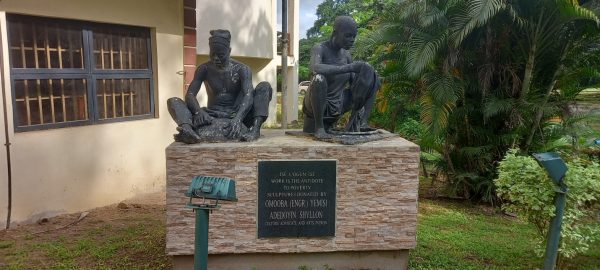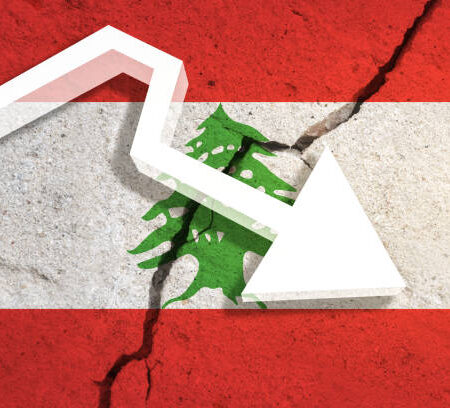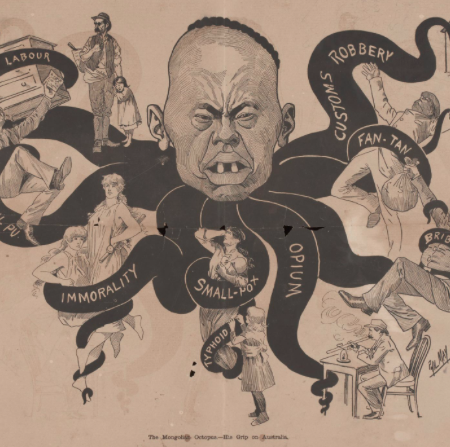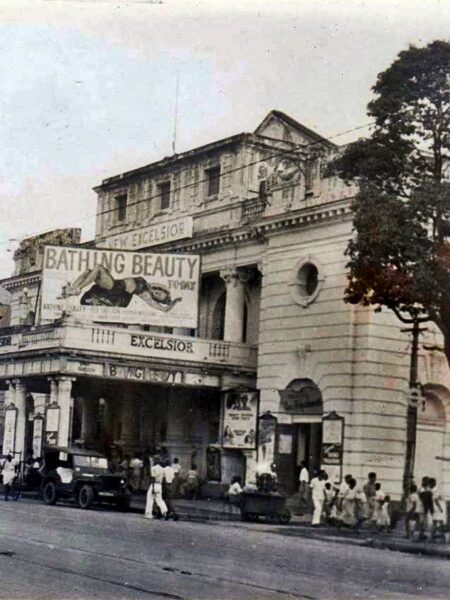Introduction
The global outbreak of COVID-19 had a disruptive impact on the economy and livelihood of many across the world. In Nigeria for instance, the virus made its local presence felt on 27 February 2020 and would eventually result in the contraction of the country’s economy in the first quarter of the fiscal year. To arrest the spread of the virus, the government instructed the shutdown of non-essential commodities and service producers. In addition, many private and civil servants were ordered to work from home, thus eroding the thin boundaries that separated the workplace from the home front. On the other hand, worker retrenchment became the order of the day in an economy that had manifested low absorptive capacity before the outbreak of the pandemic. Retrenchment in this context refer to the downsizing of the workforce due to the financial difficulty experienced across many key sectors of the economy. Resulting from all these was an increase in the number of the unemployed as well as those caught in borderline poverty.
Since the outbreak of the first wave of the COVID-19 pandemic, scholars have concerned themselves with the likely medical, economical and psychological repercussions of the nascent virus. Some of these studies have also captured the implication of the pandemic on the Nigerian education system that was already well-known for its irregular calendars and perennial strikes. Following the outbreak of the COVID-19, the Nigerian University Commission (NUC), the apex governmental body in charge of regulating university education in the country, asked all tertiary institutions to close their campuses. This instruction was given at short notice, precisely on 20 March 2020, even when no cases of COVID-19 had been reported on any school campuses. Notwithstanding, by 23 March 2020, it was expected that all the tertiary schools should have become emptied of students.
The sudden decision by the NUC and the hurried manner in which the school authorities implemented it would eventually have grave impact on the life plans of Nigerian students. Two factors can be attributed for this. Firstly, not too long after the NUC’s instruction that tertiary schools should close their campus, the Academic Staff Union of Universities (ASUU) also declared an industrial action against the federal government. This implied that the university lecturers were downing their tools and would not be available for any official engagement until their strike action was concluded. One notorious implication of this is that it foreclosed any possibility of virtual learning for students in public universities, thus amounting that whatever time that the students spent at home would not count as part of their academic calendar. Secondly, the ASUU industrial action would last ten months, meaning that students, some of whom were in their terminal classes, would be left idle for the bulk of this duration. Worse still, some students who hitherto survived on incomes from small businesses built around the university community were left to re-consider their options in the face of the pandemic.
At the height of the COVID-19 Lockdown and ASUU Strike, the official Twitter handle of ASUUasked the students, “what trade have you learnt during this long break?” This jocular tweet arose mixed reactions from the frustrated students. One such student remarked that ASUU was “wasting our lives and future and this nonsense is what you can come out to say.” (Vanguard, 8 October 2020). Another student noted that, “Trade? If I been wan learn trade, would I stress myself over certificate?? Which kain insensitivity be this?” (Vanguard, 8 October 2020). Though some respondents to the tweet were able to identify some of the skills they have learnt, what majority of the public reactions goes to show is the controversial status of student-entrepreneurship among students and the ambivalent attitude of some students towards it. Many students are of the opinion that entrepreneurship or the development of brown collar skills depart from their original career aspiration. For those with this opinion, it made little sense for a student who studying computer science to start practicing as a dressmaker. After all, if dressmaking had been the student’s ambition, s/he would have invested in this skill and not in the more expensive university education. Regardless of the people’s reaction, most Nigerian universities would not be resuming academic activities until 2021. This delayed resumption had grave implications on the career plans of the students in the public universities. In the University of Ibadan for instance, a whole academic calendar was cancelled due to the combined impact of the pandemic and ASUU Strike.
Against this background, this particular study looks at the impact of the COVID-19 pandemic on the life plans of Nigerian tertiary institution students. It concentrates on the experience of student-entrepreneurs: used in this context to refer to students enrolled in Nigerian universities but who also operate small informal businesses on the sideline. These student-entrepreneurs include dress-makers, bag-makers, gadget dealers, internet data retailers, make-over artists, cake makers, perfume dealers, cooks, hairdressers, fashion product dealers, among others. The target markets of the student-entrepreneurs include fellow students in their university campus and the young and mobile. However, with the outbreak of COVID-19 and the resultant closure of campus and some businesses, these student-entrepreneurs were compelled to rethink their business in order to save their capital and to escape the depressing boredom of being idle during the lockdown.
Methodology
This study interrogates the rationale behind postgraduate and undergraduate students of Nigerian universities embarking on small-scale business alongside their study. Also, it explores the effect of the outbreak of the COVID-19 pandemic on these student-entrepreneurs and their business choices. This work uses a qualitative method and an historical approach to answer these two questions. Primary data are collected through oral histories of student-entrepreneurs from universities in the mainly Yoruba-speaking area of Nigeria. Oral sources were collected from the University of Ibadan and the Kwara State University. In addition, the work partly relies on the participant observation conducted by the writer during the COVID-19 Lockdown of the University of Ibadan. Secondary data for this study were derived from extant literature relating to the subject.
The Essence of Nigerian University Education
It is important to note that the Nigerian tertiary educational system has its roots in colonial educational policies. Colonial authority established higher educational institutions in response to local agitation for improved manpower development and to create a skilled labour force to fill some of the technical and auxiliary positions that were emerging in the local civil service. Thus, the colonial authority established the Yaba Higher College in 1932 and subsequently the University College, Ibadan in 1948 (Ayandele, 1974). These two institutions of higher learning remained the only establishments put in place by the colonial authority until Nigeria secured her independence on October 1, 1960. Expectedly, products of these schools easily found employment in the decolonizing civil service and in private practices. Still, it was obvious that the carrying capacity of these two schools were insufficient for the nationalist aspirations of Nigerian new leaders who wanted more educated local hands to replace the European expatriates. It is in light of this that new universities were opened at Nsukka (1960), Ife (1962) and Zaria (1962) in the first decade of independence. Like their predecessors, these universities produce high skill manpower for the Nigerian economy while providing their graduates the needed skills and credentials to enable them move up on the social ladder.
With the passage of time, Nigerian tertiary educational institutions has grown in leap and fold. Currently, there are about 170 universities in Nigeria, compared to four that were available in the 1960s. This exponential expansion of the tertiary educational space is driven by the increase in the number of school leavers produced by the secondary schools; and the decentralization of the laws that regulate the establishment of new universities in the country. Unlike the past when only the federal or state (regional) governments could establish universities, these days, many private bodies and individuals now possess operational licences to run tertiary educational institutions. Due to this, 79 of the 170 universities in Nigeria are private universities.
Notwithstanding this growth in the tertiary educational sector, the Nigerian economy has not displayed reliable absorptive capacity to employ the bulk of the products of these educational establishments. Indeed, the dilemma of what to do or become after completion of university education (and the mandatory one-year national youth service corps [NYSC]) is common among final year students and graduates of Nigerian universities. Regardless of what one studies in the university, it is common knowledge that there is no job waiting out there for many and the universities and NYSC are nothing but stop-gaps for a career in unemployment. Save the few who study professional courses like medicine, engineering, accounting, law and the likes, the future seems bleak for the majority.
Even among those that study the acclaimed professional courses, the meagre income paid to those working in local industry does not inspire much confidence. Remarking on the medical profession, Adeosun Goodness Taiye, a 400-level Dentistry student of the University of Ibadan and shoe cobblers noted that, “[she] will probably abandon the medical school and pursue shoe-making because it will bring more money compared to the stipend they pay Doctors in Nigeria. I just want to have the certificate, honestly speaking.” (Daily Trust, 4 April 2020). This goes to say that it is not enough to enroll in a professional course, personal consideration of the prospect goes a long way in determining if one would become a student-entrepreneur.

Figure 1. A sculpture in the Faculty of Arts, University of Ibadan, emphasising the importance of “handwork.”
It should be added that the government and the university authorities are not oblivious of the incongruous nature of the country’s tertiary educational sector. On their part, the university authorities have responded by making a course in entrepreneurship compulsory before any student can graduate from the university. Universities like the Osun State University, Osogbo have also established loan-schemes in which self-employed graduates of the school can tender their certificate as collateral to access loans for operating a business. On the other hand, governments have implemented a number of graduate retraining schemes and youth empowerment initiatives to engage the products of the tertiary institutions. Whereas these two cited responses are institution led, some students have also taken to businesses during their studies as a response to the social obstacles to their preferred lifestyle and future aspirations. Many students are of the opinion that the stipend derived from their home cannot cover their every need and this additional income supplement this shortfall. This is further elaborated below.
Locating the Emergence of Student-Entrepreneurs and the Dilemma of COVID-19
During the golden age of Nigerian universities, unauthorised trading was one of the activities prohibited on the school campuses. This, however, is not to say that there were no instances of students engaged in this illegal act but it was generally accepted that businesses could become distracting and may detract a student from their academic pursuit. Moreover, enrolled students in the university at this period enjoyed a highly subsidized education with cheap and affordable halls that provide laundry and eatery services. This was partly because postcolonial Nigeria construct tertiary education as social responsibility and some students were even beneficiary of government scholarship. There is no doubt that these were made possible due to the handful numbers of schools and the subsequent oil wealth the country amassed during the oil boom of the 1970s. Again, the country had not suffered from disruptive permeation of Brettonwood institutions who introduced a number of neoliberal reforms (Interview by Prof. Ayodeji Olukoju). These neoliberal reforms coincided with the expansion of the number of the public universities, the 1980s oil glut and subsequent implementation of the Structural Adjustment Programmes (SAP). As a result, government was forced to prune the budgetary allocation to the universities.
There is no gainsaying that the implementation of the Structural Adjustment Programmes (SAP) and its attendant neo-liberal reforms affected Nigeria in many ways. SAP led to the retrenchment of many civil servants, the privatisation of some government ventures, and the de-regularisation of the Naira, among others. For university students, this amounted to increased cost of living and the need for an alternative means of supplementing the meagre stipend they get from home. In worst instances, some students had to entirely fend for themselves as their parents were retrenched from work. What this implied was that these students had to resort to trade or to combine their study with some form of part-time employment. Perhaps, it is within this chaotic period in the history of Nigerian universities that the phenomenon of student-entrepreneurship became more pronounced. With the oscillating fortunes of the Nigerian economy, it has become commonplace to see student-entrepreneurs on university campuses, at residential halls and most especially at the Students Union building where they showcase their wares and offer their services to their fellow students and other intending customers.
It is important to stress that the business model of student-entrepreneurs largely centres around window-shopping and the utilization of social media to connect to their intended customers. This model was complicated by the implementation of the NUC’s university lockdown as all students were ordered to vacate the school premises and to return home as soon as possible. For many students, this decision derailed their prepared career plan as the university campus would not be resuming until after ten months. This was equivalent to one session and many who had planned to graduate and convoke in 2020 had to shift their plan to 2021. For some others, the school lockdown threatened their livelihood as their sustenance was built around the opportunities availed by the university environment. For a lockdown that lasted ten months, many student-entrepreneurs risk losing their operation capital, shop rents, and products (through expiry date) if new ways were not devised to cope with the challenges heralded by the COVID-19 pandemic.
Equally remarkable is that the outbreak of COVID-19 presented both challenges and opportunities to student-entrepreneurs. Ms. Oluwatosin Adeyemi, a postgraduate student in the University of Ibadan acknowledged this fact when she recounted her experience of the COVID-19. Prior to the outbreak of the pandemic, she sold perfume products and her business was doing fine. However, with the outbreak of the pandemic, she was forced to reconsider her business options as customers now prioritize essential commodities above luxury goods like perfumes. This development threw her existing business model into disarray as new sales were not forthcoming. The case of Mr. Henry Olorunmola, an undergraduate student in the University of Ibadan, is also similar to that of Ms. Adeyemi. A trained fashion designer, many of Mr. Olorunmola’s clients come from the university campus and his church community. However, with the social restriction placed on public gatherings like churches, markets, Owanbe parties, festivals and so on, demand for fashion products significantly dropped. In the main, he used the break to execute the pending fashion contract he had but after completing this, it became herculean to get new jobs.
The experience of Ms. Adeyemi and Mr. Olorunmola are not so surprising in the sense that their target market was contracting and consumers – mainly due to shrinking income – began to prioritise essential commodities like food, sanitizers, facial mask, electricity, and internet data as against luxury or non-pressing matters like perfumes and clothes. Expectedly, small businesses involved in the sales of the aforementioned products continued to do business as usual during the pandemic while those rendered redundant by the pandemic had to devise new ways of coping with the lockdown.
Ms. Josephine Onigbinde, another postgraduate student of the University of Ibadan, explained that she realised that the school lockdown and COVID-19 pandemic is not particularly bad for small business as it produces- new opportunities. For example, following the lockdown of her university and the implementation of COVID-19 lockdown in her state of residency, she saw that there would be opportunities in prepared food production for people now trapped at home due to the lockdown. After the announcement of the COVID-19 lockdown in Plateaus State Nigeria, she announced a plan to deliver prepared food packages for intending customers on her social media handles. She received favourable responses and orders from across the state. This marked the onset of her cooking business and she expanded this to include cake production and pastries. Throughout the pandemic, her business thrived well until she had to return to school to resume her study.
Similarly, Ms. Adeyemi had to divest from her perfume trade to food business because of the underperformance of her then business. This divestment proved a positive change as she recorded improved patronage from customers within Oyo State, and as far as Lagos. It is important to clarify what is meant by “divestment” in this context in order to avert misleading readers that the student-entrepreneur abandoned their earlier trade. For Ms. Adeyemi, divestment implied focusing on her new food business while putting her perfume trade on hold. Alternatively, she could have decided to sell her wares at cheaper price to raise capital for her new business but she rather relegated it during the pandemic until when the COVID-19 lockdown was relaxed and demand for perfumes began to pick again. There is no doubt that this approach is more profitable as her perfume wares had a longer lifespan, hence she could easily stock them, compared to those who sold perishable items.
Admittedly, the fortune of dressmakers and fashion-designers is somewhat more nuanced compared to other student-entrepreneurs affected by the pandemic. In the case of Mr. Olorunmola, he had to return home after executing all the pending fashion contracts he had with him. At home, he re-trained himself and attempted to learn new ways of dressmaking during the lockdown. Hence, it is right to say that Mr. Olorunmola was unable to put to productive use (in terms of making money) much of his lockdown time spent at home. Notwithstanding, spending his time at home ensures that he was able to modestly cut his cost of living as he lived off his parents while he was at home. Some students however do not have the luxury of this option. A respondent, Fatimah Toyin, a postgraduate student of Kwara State University, admitted that her sustenance fee was cut immediately after her first degree. During her second-degree, she had to look for alternative means of augmenting her meagre sustenance fee.
When her university was suddenly closed and her future plans delayed, she had little choice but to consider capitalising on her available skill set. Fortunately for her, she had training in dress-making but she had never operated any business until the pandemic. To escape redundancy and the uncertainty of school resumption, she took to tailoring and started making ready-made gowns and female dresses. These dresses were subsequently displayed on her social media handles, thus ensuring that she reached a broader audience compared to if she had built her business model on window-shopping. With the impressive feedback she received from her first designers, she established Simply Elegant Wears and has continued to operate the venture, even after the resumption of studies.
Conclusion
The outbreak of COVID-19 and the attending lockdown of university campuses increased the uncertainties around the career prospect of students of these educational establishments. For student-entrepreneurs, the major dilemma was the preferred stay-at-home COVID-19 containment policy and its disruption of their trade economy. Student-entrepreneurs had reacted to these economic uncertainties by embracing new technologies to reach a broader market while also divesting into new business that conformed with the dictates of the pandemic economy. One broader implication of this is that the target market of student-entrepreneurs grew and now transcends beyond the university communities. This has created a market for courier services and transporters who assist in moving the product of the student-entrepreneurs across state borders. There is no doubt that such a supply system threatens the sustainability of other smaller businesses that are not so integrated to the internet. Yet, with the Nigerian economy contracting and companies laying off more staff, more students are now likely to pursue self-employment with their studies as against the first generation of Nigerian graduates who easily found engagements in the civil or private establishments. The losers in this would be petty traders without access to the Internet and its many opportunities. Here, class and the location of the petty traders in the largely informal sector where window-shopping was the norm can be attributed for their disadvantaged position.
Be that as it may, it is worth stressing that it is not all universities that tolerate the existence of student-entrepreneurs. This is particularly evidenced in the Nigerian private schools where the opinion that running a business alongside academic studies could be disruptive. Though all my respondents are from public universities, they all seem to agree that being student-entrepreneurs can be difficult and distracting. Some of them admit that they have abandoned their “pandemic business” in order to face their studies. On the other hand, others have resorted to crafting a balance between their businesses and academic activities in order to get the best of both, without affecting the other. One obvious implication of this study is that the perception of student-entrepreneurs to their university education is that it is insufficient in guaranteeing their gainful employment. This skepticism was further reinforced by the COVID-19 pandemic and its devastating impact on the absorptive capacity of the economy to employ its graduates. In lieu of becoming financially broke students or unemployed graduates, some students in Nigerian tertiary educational institutions have pursued entrepreneurship as a means of economic survival.
References
Adeyemo, J. A. 2000. The Demand for Higher Education and Employment Opportunities in Nigeria. In Yan Lebeau and Mobolaji Ogunsanya (eds.) The Dilemma of Post-Colonial Universities, 241-266. Ibadan: IFRA/ ABB.
Ayandele, E. A. 1974. The Educated Elite in the Nigerian Society. Ibadan: University Press.
Balogun, A. 2018. “We are going to join millions of Unemployed Graduates.” The Problem of Incorporating Entrepreneurship Courses into the Youth Service Programme in Nigeria. Modern Africa: Politics, History and Society 6, No. 1: 85–106
Falola, T. and Heaton, M. M., 2008. A history of Nigeria. London: Cambridge University Press.
Lebeau, Y. 2000. Aspects of the Instrumentalization of the University in Nigeria: Students Experience and the Current Significance of the Certificate. In Yan Lebeau and Mobolaji Ogunsanya (eds.) The Dilemma of Post-Colonial Universities, 147-168. Ibadan: IFRA/ ABB.
Osoba S. O. and Fajana A. 1980. Educational and Social Developments. In Obaro Ikime (ed.) Groundwork of Nigerian History, 570 – 600. Ibadan: Heinemann.
Simona Varrella, “Number of universities in Nigeria as of 2020, by ownership,” Statista, 17 December 2020. Retrieved from: https://www.statista.com/statistics/1130701/number-of-universities-in-nigeria/
Dennis Erezi, “NUC orders closure of all universities nationwide,” Guardian Newspaper, 20 March 2020. Retrieved from:https://guardian.ng/news/nuc-orders-closure-of-all-universities-nationwide/
Nigeria Centre for Disease Control, “First Case of Corona Virus Disease Confirmed in Nigeria,” 28 February 2020. Retrieved from:https://ncdc.gov.ng/news/227/first-case-of-corona-virus-disease-confirmed-in-nigeria#:~:text=The%20Federal%20Ministry%20of%20Health,in%20China%20in%20January%202020
Richard Ngbokai, “ASUU Declares Indefinite Strike,” Daily Trust,23 March 2020 . Retrieved from:https://dailytrust.com/breaking-asuu-declares-indefinite-strike
David Royal, “STRIKE: What trade have you learnt during this long break?” Vanguard, 8 October 2020. Retrieved from: http://vanguardngr.com/2020/10/strike-what-trade-have-you-learnt-during-this-long-break-asuu-asks-students/
Abdullateef Aliyu, “I’ll Rather Quit Medicine Than Abandon Shoe-Making – Student,” Daily Trust. 4 April 2021. Retrieved from: https://dailytrust.com/ill-rather-quit-medicine-than-abandon-shoe-making-student
Interview with Ms. Josephine Onigbinde, a postgraduate student of the University of Ibadan.
Interview with Ms. Oluwatosin Adeyemi, a postgraduate student of the University of Ibadan.
Interview with Mr. Kehinde Oyedepo, a postgraduate student of the University of Ibadan.
Interview with Mr Henry Olorunmola, an undergraduate student of the University of Ibadan.
Interview with Ms Fatimah Toyin, a postgraduate student of Kwara State University.
Interview with Ms Oluwafunmilayo Oloke, an undergraduate student of Kwara State University.















